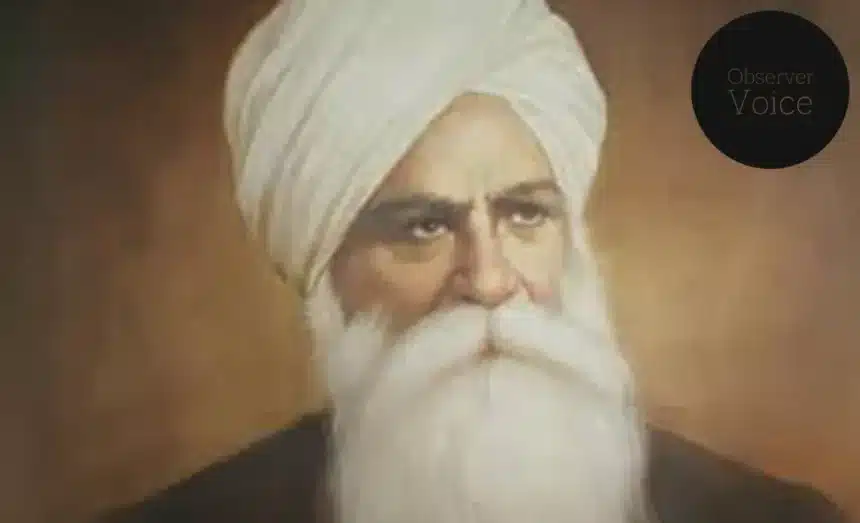Bhai Vir Singh (5 December 1872 – 10 June 1957) was an Indian poet, scholar, and theologian of the Sikh revival movement, playing an important part in the renewal of the Punjabi literary tradition. He laid the foundation of ‘The Khalsa Tract Society’ in 1894.
Early Life
Bhai Vir Singh was born on 5 December 1872, in Amritsar, Punjab, British India. He had the benefit of both traditional indigenous education as well as modern English education. He learned Sikh scripture as well as Persian, Urdu, and Sanskrit. In 1981, he completed his matriculation from the Church Mission School, Amritsar. He received his secondary education at Church Mission High School.
Using the skills he learned in English classes, Singh wrote stories, poems, and epics to record Sikhism’s history and philosophy.
Career
His father’s friend Wazir Singh helped him set up a lithography press. His first job was writing and printing geography textbooks.
He wrote at a time when Sikh religion and politics and the Punjabi language were under such strong attack by the English and Hindus that the Sikhs had begun to doubt the value of their way of life. He extolled Sikh courage, philosophy, and ideals, raising respect for the Punjabi language as a literary language. His philosophy is that man must get over his ego or pride before he can realize God.
In Amritsar, Bhai Vir Singh founded the weekly Khalsa Samachar (“News of the Khalsa”). Among his novels are Kalgidlur Camathar (1935), a novel on the life of the 17th-century Guru Gobind Singh, and Guru Nanak Camathar, 2 vol. (1936; “Stories of Guru Nanak”), a biography of the originator of the Sikh religion. Other novels on Sikh philosophy and martial excellence include Sundari (1943), Bijay Singh (1899), and Baba Noudh Singh (1946). His poem “The Vigil” was published posthumously. The Punjab University recognized his contribution by awarding him an honorary doctorate.
Bhai Vir Singh began taking an interest in the affairs of the Singh Sabha movement. To promote its aims and objectives, he founded the Khalsa Tract Society in 1894. The tracts produced by the Khalsa Tract Society introduced a new style of literary Punjabi.
He was one of the founders of the Punjab & Sind Bank.
Awards
In 1956, he received the Padma Bhushan, the third-highest civilian award in India.
In 1955, he was honored with the Sahitya Akademi Award.
Death
Bhai Vir Singh died on 10 June 1957, in Amritsar, Punjab, India.
Read More: Stanford Launched 6 FREE Courses with Certificates

